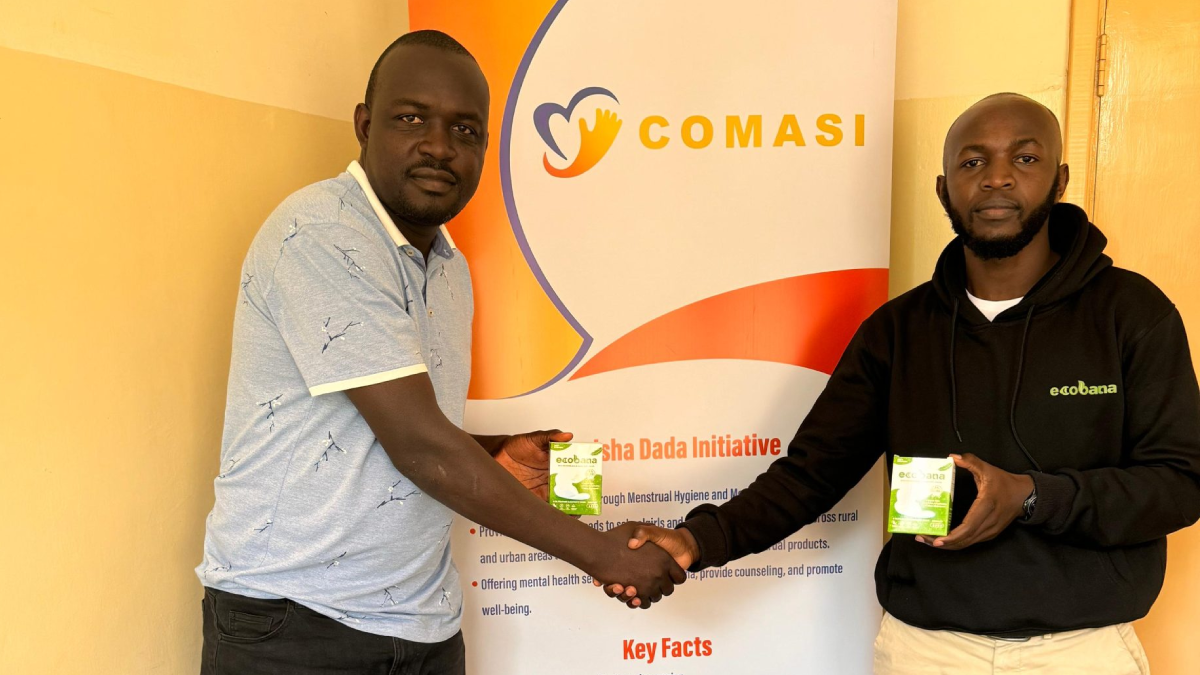
COMASI recognizes the importance of achieving a 15% forest cover in Kenya
March 7, 2024COMASI and EcoBana: A Partnership for Sustainable Community Development
In a world where sustainable development is more crucial than ever, collaborations between organizations that focus on both environmental and social impact are setting the stage for a brighter future.
One such partnership that stands out is between COMASI (Community Alliance for Support Initiative) and EcoBana Limited.
These two organizations, each with its own unique focus, have joined forces to address some of the most pressing challenges facing communities today—especially those in Kenya.
The Vision of COMASI
COMASI is a non-governmental organization committed to fostering holistic community development across several counties in Kenya, including Nairobi, Kisumu, Migori, Homabay, and Nyamira.
Our mission revolves around education, healthcare, environmental conservation, and poverty alleviation. The organization’s efforts span across multiple areas, from offering training programs to launching initiatives that provide sustainable solutions to environmental and social challenges.
One of the major issues COMASI has focused on is the environment. With over 29 million kilograms of waste being deposited into Lake Victoria annually, COMASI has been actively working on afforestation and reforestation projects to help mitigate environmental degradation.
They also emphasize education on sustainability, advocating for environmentally friendly practices in local communities.
EcoBana’s Environmental and Social Impact
EcoBana is a pioneering Kenyan social enterprise that produces 100% organic, biodegradable sanitary pads made from banana fibers.
The company’s goal is to provide a sustainable alternative to conventional sanitary products, which often contribute to environmental pollution due to their non-biodegradable nature.
EcoBana’s mission goes beyond product innovation; it seeks to empower women and create social impact by involving local women, refugees, and youth in its supply chain.
EcoBana’s sanitary pads are produced using banana fibers, a natural material that is both eco-friendly and sustainable.
This approach not only helps reduce waste but also supports the local agricultural industry.
The organization’s focus on women’s health and environmental sustainability has earned it recognition, including winning the prestigious Hult Prize in 2022, which recognizes innovative solutions to global challenges.
The Synergy of the Partnership
The collaboration between COMASI and EcoBana represents a powerful combination of social enterprise and community development.
Both organizations share a deep commitment to environmental sustainability, social inclusion, and empowering marginalized communities. By working together, they have the opportunity to amplify their impact in the following ways:
1. Promoting Environmental Sustainability
COMASI’s ongoing efforts to address environmental challenges through waste management and reforestation align perfectly with EcoBana’s mission to reduce the environmental impact of sanitary products.
As part of their partnership, the organizations can collaborate on initiatives that promote the use of biodegradable products in communities while educating people about proper waste disposal and the benefits of sustainability.
2. Supporting Women and Communities
One of the most exciting aspects of the partnership is the shared focus on empowering women and local communities. EcoBana’s business model involves sourcing banana fibers from local farmers and providing women with the skills and opportunities to work in the production process.
COMASI, through its various community development programs, can help EcoBana expand its reach by facilitating local workshops and training that will further support women’s involvement in sustainable practices.
3. Health and Education Initiatives
Together, COMASI and EcoBana can work to improve the health and well-being of women, particularly those in rural areas.
With COMASI’s focus on healthcare and EcoBana’s dedication to women’s menstrual health, the two organizations can partner to distribute sanitary products and educate communities on menstrual hygiene.
Through educational campaigns, they can also raise awareness about sustainable practices and the importance of environmental conservation in health and sanitation.
4. Strengthening Community Engagement
The partnership offers an opportunity to foster deeper community engagement through joint initiatives. Both organizations can create awareness campaigns that target the importance of sustainability, community health, and women’s empowerment.
COMASI’s presence in various counties provides an ideal platform for EcoBana to expand its products and services to underserved areas.
A Vision for the Future
As Javan Otieno, CEO of COMASI, so aptly puts it, “Sustainability is not just a goal; it’s a responsibility we all share. By working together, we create a ripple effect that transforms lives, empowers communities, and protects the planet for future generations.” This sentiment echoes the shared vision of COMASI and EcoBana as they come together to tackle some of Kenya’s most pressing challenges.
The Road Ahead
As the partnership between COMASI and EcoBana continues to grow, the potential for positive change is vast. From empowering local communities to driving environmental sustainability, this collaboration is paving the way for a future where both people and the planet can thrive. By combining their resources and expertise, they are proving that when organizations come together with a shared vision, they can create lasting change that benefits all.
Together, COMASI and EcoBana are not just addressing the environmental and social challenges of today—they are shaping a more sustainable and equitable future for generations to come.

 Donate
Donate
